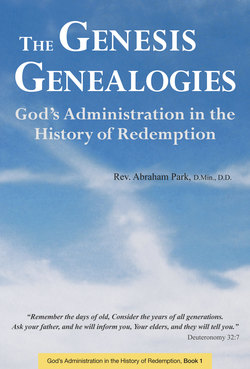Читать книгу The Genesis Genealogies - Abraham Park - Страница 18
На сайте Литреса книга снята с продажи.
ОглавлениеThe Bible is not merely a historical account of the Israelites; it is a magnificent record that contains the grand theme of God’s work of redemption, starting with the account of creation (Gen 1–2) and concluding with the completion of the new heaven and the new earth (Rev 21–22).
The word redemption has a similar meaning to the word liberation and also refers to salvation, which is freedom from the bondage of sin obtained through a ransom payment. Therefore, redemption entails a ransom payment for our sins since the wages of sin is death (Rom 6:23). Jesus is the only one in heaven and on earth who has given up His own life as a ransom to redeem us from death (Matt 20:28). In 1 Timothy 2:6, Jesus is described as the one “who gave Himself as a ransom for all.” Matthew 20:28 states that Jesus came “to give His life a ransom for many.” Ephesians 1:7 states, “In Him we have redemption through His blood, the forgiveness of our trespasses.” And 1 Peter 1:18–19 further explains, “knowing that you were not redeemed with perishable things like silver or gold from your futile way of life inherited from your forefathers, but with precious blood, as of a lamb unblemished and spotless, the blood of Christ.”
God transferred all of the sins of mankind onto Jesus, who was without sin (Heb 4:14–15), and imparted His righteousness as a gift to those who believe in Jesus (Rom 4:25; 8:3–4; 2 Cor 5:21; Eph 2:8; Col 1:20–22; 1 Pet 3:18). God paid the ransom for our lives by sending His Son in the likeness of sinful flesh, so that His Son may give up His life in order to fulfill the “requirement of the Law” (Rom 8:3–4). Colossians 1:21–22 states, “And although you were formerly alienated and hostile in mind, engaged in evil deeds, yet He has now reconciled you in His fleshly body through death [v. 20: the blood of His cross], in order to present you before God as holy, blameless and beyond reproach.”
Thus, the “history of redemption” refers to the entire course of history in which God saves sinners through the death and resurrection of Jesus Christ. A broader definition of the “history of redemption” is God’s administration to renew mankind and all creation, thereby recovering the paradise that was lost through the fall of Adam and Eve (Rev 21:5).
The history of this world is founded upon the history of God’s work of salvation because God is the origin of all history and sovereign over its development and changes (1 Chr 29:11–12; Job 12:23; Ps 103:19; Dan 4:25; Eph 1:11). The history of God’s redemptive work is not separate from the history of this world; God works with, through, and upon the foundations of secular history. Therefore, a careful study of the Bible will give us deeper insight into the truth regarding the past, the present, and the future of this world.
Although we believe in God and have become His children, we easily overlook His greatness. We do not understand the enormity of His heart or the intricateness of His plan. It is my prayer that by studying of God’s administration for salvation from the very beginning in detail, we will gain the insight to discover His greatness and praise His works. Moreover, I pray that each one of us may come to realize where we stand in terms of the progression in God’s redemptive history as well as our respective duties and calling.
